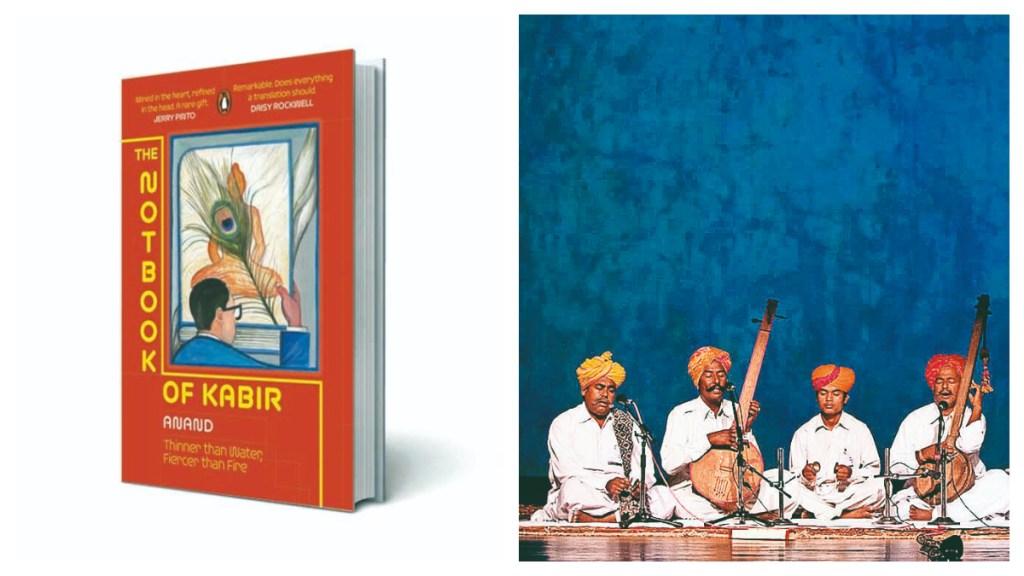By Amitabh Ranjan
In this world of mine
No space
No sky
No breeze
No water…
In the song titled Freeing freedom from itself, early in his book, Anand gives you a glimpse of the idea of non-self that runs like a thread through Buddha, Kabir, Goraknath, Ambedkar and a slew of others who wrote and composed in different time periods and geographies.
In Body Thief, the death is the only lover who will wait a lifetime for us, the beloved being the God.
I will sing my way out lays bare the predicament of a bride who yearns for union with the beloved, a union which society and family will not allow.
These are just a glimpse of a delectable fare that awaits the reader between the covers in The Notbook of Kabir. To borrow Meena Kandasamy’s words, this one is history and politics, poetry and philosophy, prose at its most precise and is simultaneously tender and savage.
The title will draw your eyes more than once as you think something is amiss. But as you go through ‘An Interjection’ that works as an introduction to the book you will appreciate its ingenuity. According to Anand, the author, singer, poet rolled in one, though Kabir is found in many books, more often he is found outside of them, in the song and dance of wayfarers. The book is an effort to find this unheard and absent Kabir. And the result is: the reader gets both “Kabir and Not”.
The mystic-poet who in all probability lived in the 15th century remains alive in his sung-and-heard couplets and often comes with local inflexions and improvisations. The couplets are meddled, new poets and singers walk in, new words and phrases are imported, deleted, amended, and even invented. A unique corpus of emerging and expanding ‘Kabiri’ is thus created. Just as the legend defied the boundaries of religions, the book refuses to be encumbered by the academic standardisation.
The reader will find in the book Kabir as he is rendered by a range of artistes— Prahlad Tipaniya, a Dalit from the Malwa region in Madhya Pradesh; the late Kumar Gandharva, a Brahmin from Karnataka; Mukhtiyar Ali, a Sufi singer from Rajasthan; Kaluram Bama-niya, another Dalit from Malwa; qawwal Fariduddin Ayaz and Abu Mohammed who trace their lineage to Delhi but now make a living in Karachi; and Mahesha Ram, a singer from Rajasthan who belongs to the weaver community.
The songs are first given in Nagari version, followed by its Roman transliteration. This is followed by the translation and notes. A phonetic guide is also provided.
Several of the songs were stumbled upon by Anand as part of The Kabir Project initiated in 2002. It led him on a search of more such songs. A dalliance began. Kabir is mixed and remixed in Anand’s hands but remains pristine. Through his vocalism, the poet turns Kabir into a timeless joy.
Pick up the book and flip through the pages on a day you feel angry, frustrated, bored or directionless. Pick it up even if you are unaware about him. Pick it up even though you think you have read him enough. Kabir will still hold your hand and walk you through a land of glee with a limitless expanse.
Amitabh Ranjan is a former journalist who teaches at Patna Women’s College
Book details:
Title: The Notbook of Kabir: Thinner than Water, Fiercer than Fire
Author: Anand
Publisher: Penguin Random House
Number of pages: 332
Price: Rs 499









